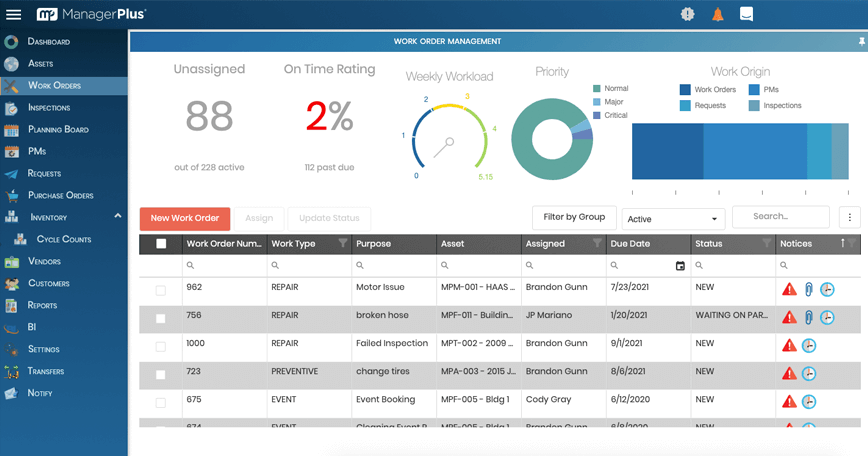Evolve Fleet Management Systems: Innovative Solutions for Modern Fleets
Optimize Fleet Operations With Cutting-Edge Software Application Solutions
In the world of modern-day fleet management, the assimilation of innovative software options has actually ended up being vital for services aiming to improve their operations and improve total effectiveness. As technology remains to development, the usage of innovative devices and platforms has transformed the means fleets are taken care of, offering a plethora of advantages ranging from maximized course intending to real-time tracking capacities. The true power lies in the synergy of these remedies and their capability to not only address current functional difficulties yet also lead the method for future development and success. The key to opening this possible depend on welcoming a holistic strategy that combines various software application applications to produce a natural and data-driven community.
Advanced Course Optimization Devices
Enhancing fleet procedures with the application of sophisticated route optimization devices is vital for enhancing performance and minimizing prices. These devices utilize sophisticated modern technology to enhance path planning, making certain that lorries are taking the most efficient paths to reach their destinations - fleet management tools. By analyzing numerous variables such as web traffic patterns, climate condition, and distribution home windows, these tools can create optimized paths that lessen fuel intake and minimize chauffeur still time
Advanced course optimization tools additionally supply real-time updates and notifies, permitting fleet managers to adjust to altering circumstances on the fly. This versatility enables quicker feedback times to unforeseen occasions, such as traffic jam or last-minute distribution requests, boosting general consumer fulfillment.
Furthermore, these devices offer understandings into motorist efficiency and car application, assisting recognize areas for enhancement and cost-saving possibilities. By optimizing paths and making best use of resources, fleet procedures can achieve higher efficiency degrees and ultimately drive earnings. In today's competitive company landscape, purchasing advanced route optimization devices is a tactical choice that can generate significant operational advantages.
Real-Time Fleet Tracking Solutions
Real-time fleet tracking solutions play a critical duty in enhancing functional presence and efficiency for companies managing a fleet of automobiles. By making use of GPS modern technology and innovative software program, these remedies give real-time updates on lorry area, rate, and condition. This level of transparency allows fleet managers to make enlightened choices without delay, causing enhanced path planning, reduced gas intake, and much better general fleet usage.
With real-time fleet tracking, organizations can check vehicle driver habits, guarantee adherence to schedules, and boost customer care by providing exact arrival times. The capacity to track automobiles in real-time also makes it possible for fast reaction to unanticipated hold-ups, such as website traffic blockage or road closures, aiding to lessen interruptions and maintain solution levels.

Automated Upkeep Administration Systems
With the structure of real-time fleet tracking options in place, organizations can improve their operational effectiveness further by incorporating automated maintenance administration systems. These systems streamline the upkeep procedure by automating tasks such as organizing routine upkeep, tracking car fixings, and managing supply for spare components. By implementing automated maintenance monitoring systems, companies can lower downtime, extend the life expectancy of their fleet automobiles, and minimize unforeseen break downs.
Among the key benefits of automated upkeep management systems is the capability to set up upkeep based on actual lorry usage and performance data. This proactive strategy helps avoid pricey repairs by dealing with concerns prior to they escalate. Additionally, these systems supply real-time understandings right into the health of each car in the fleet, enabling fleet supervisors to make data-driven decisions and prioritize Discover More maintenance tasks effectively.
Boosted Driver Communication Platforms
Improved vehicle driver interaction platforms also empower motorists by supplying them with devices to report problems, interact with dispatchers, and original site gain access to crucial info on-the-go. This streamlined communication not only improves driver satisfaction however additionally increases overall performance and efficiency. In addition, these systems commonly use performances such as electronic logging and performance analytics, offering fleet supervisors useful insights into vehicle driver behavior, vehicle utilization, and functional effectiveness.
Data-Driven Performance Analytics
To further maximize fleet procedures and enhance decision-making procedures, leveraging data-driven efficiency analytics is vital. By utilizing the power of advanced analytics devices, fleet managers can gain beneficial insights into various facets of their operations, consisting of automobile performance, vehicle driver habits, fuel performance, and maintenance timetables. These analytics allow supervisors to determine trends, patterns, and outliers that can influence operational performance and cost-effectiveness.
With data-driven performance analytics, fleet supervisors can track essential efficiency indicators (KPIs) in real-time, permitting this link positive decision-making and prompt interventions to resolve any concerns that may develop. By keeping track of factors such as automobile utilization rates, idle times, and path efficiency, managers can maximize fleet resources, minimize gas consumption, and lessen downtime. Additionally, performance analytics can aid identify chances for procedure improvements, training efforts, and strategic investments to improve general fleet performance.
Conclusion
In verdict, optimizing fleet operations with cutting-edge software application options can substantially improve effectiveness and performance. By making use of advanced path optimization tools, real-time fleet monitoring remedies, automated maintenance monitoring systems, enhanced vehicle driver communication systems, and data-driven performance analytics, business can enhance their procedures and decrease prices. These technological improvements enable far better decision-making and total fleet management, resulting in a more efficient and competitive company design.